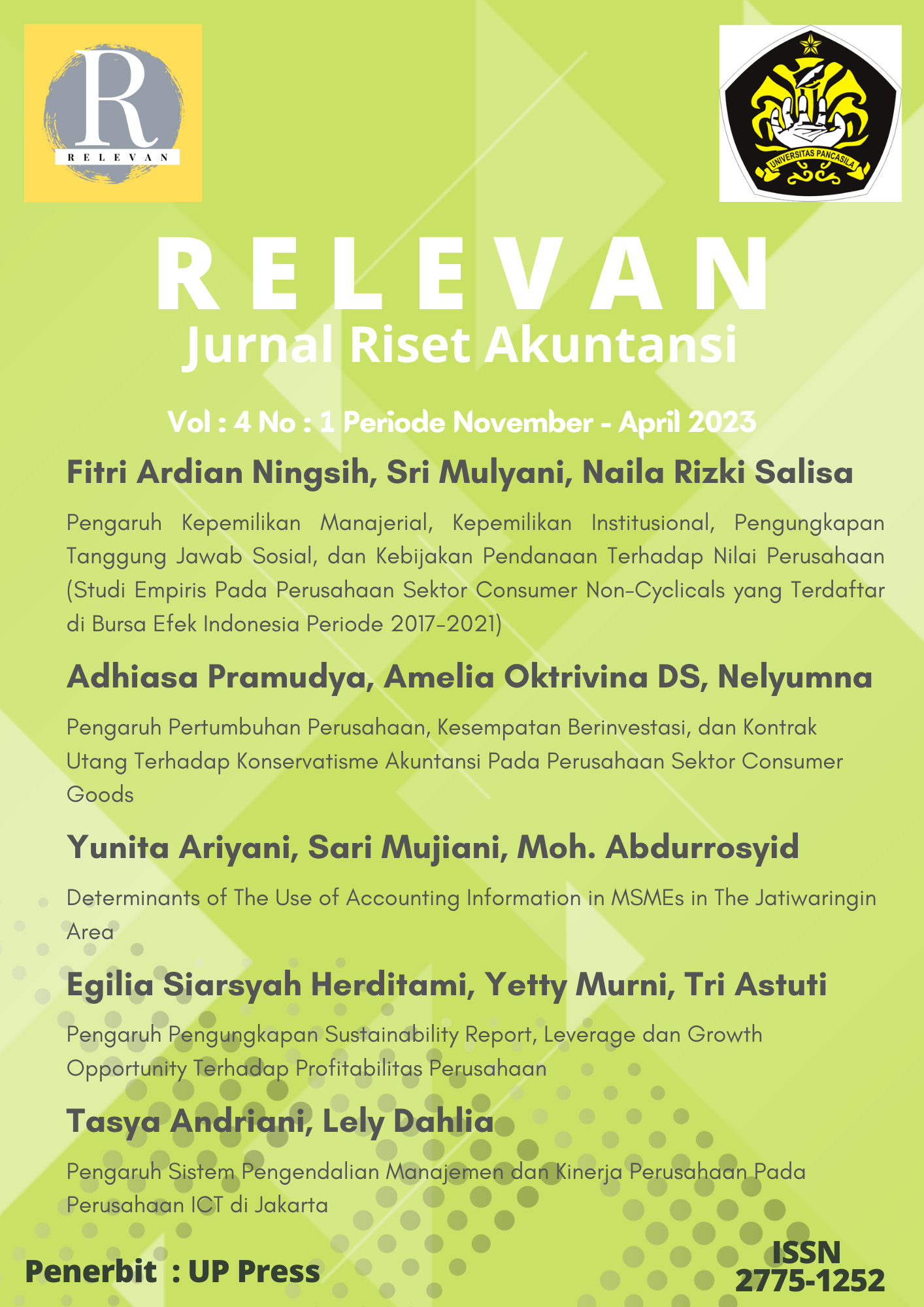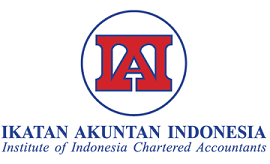PENGARUH PERTUMBUHAN PERUSAHAAN, KESEMPATAN BERINVESTASI, DAN KONTRAK UTANG TERHADAP KONSERVATISME AKUNTANSI PADA PERUSAHAAN SEKTOR CONSUMER GOODS
DOI:
https://doi.org/10.35814/relevan.v4i1.5620Keywords:
Growth, Investment Opportunity, Laverage, Accounting ConservatismAbstract
The failure to implement accounting conservatism in financial reporting might give rise to various fraudulent acts that possess the capacity to inflict substantial harm upon the firm. The primary aim of this research is to investigate the factors that may impact the adoption of accounting conservatism in a corporation's annual financial reporting. This study investigates the variables of company growth, investment opportunity, and debt covenant. The study's sample consists of manufacturing businesses that operate within the consumer goods industry sector and are publicly listed on the Indonesia Stock Exchange (IDX). The study employed a purposive selection technique to choose a sample of 15 manufacturing companies operating in the consumer products industry, specifically within the food and beverage subsector. These companies were selected from the list of companies listed on the Indonesia Stock Exchange over the time span of 2018-2021. The data processing in this study was helped by employing SPSS version 27.0 software. The results of this study suggest a significant influence of company growth and investment opportunity on the adoption of accounting conservatism. On the contrary, debt covenant do not have a significant impact on the degree of accounting conservatism.















